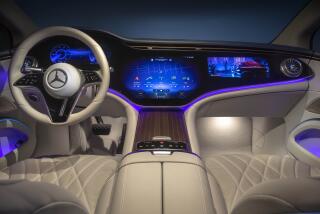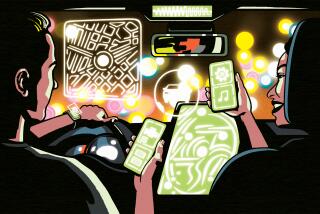Report: Explosive growth ahead for automotive electronics industry
The global market for advanced automotive electronics -- everything from driver assistance programs to new kinds of visual displays -- will jump to $240 billion by 2020, up more than 50% from 2010, according to a new report from IHS Inc.’s IMS Research.
The leap “reflects the field’s rising importance to the car industry at large, especially as original equipment manufacturers ratify in-vehicle electronics to be an essential selling feature for an automobile,” said Ben Scott, automotive analyst for IHS.
Some of the drivers, no pun intended, are government safety mandates for things like improved electronic stability control (ESC) and tire pressure monitoring systems (TPMS).
PHOTOS: Which cars, trucks and SUVs are truly American made?
Scott added that the integration of advanced driver assistance systems “into the instrument cluster and head up displays” on vehicles “is expected to be commonplace in the future.”
Jack Nerad, executive editorial director and executive market analyst for Kelley Blue Book, said that some of the more exciting developments will be vehicle-to-vehicle communications as an added safety feature.
“There’s a car speeding toward the intersection you are approaching and you’re not aware of it, but your car is, and it warns you,” Nerad said, adding that the same kind of system could warn drivers about unseen vehicles in their car’s blind spots.
The market for advanced driver assistance systems is expected to triple between 2010 and 2020.
Instrument clusters will feature at least one LCD display, the report said, adding that HUDs or heads-up displays “represent an ideal way to deliver [advanced driver assistance] information, showing data directly in the driver’s field of view.”
Moreover, the visual displays and driver assistance systems will be trickling down from premium cars, trucks and SUVs “to more affordable family cars within the next five years.”
So-called “combiner displays” are also expected to drive growth. This type of visual display employs an angled piece of flat glass that redirects a projected image to the driver’s field of view.
But how much is too much?
The report said that caution should be exercised: If too much information appears, the display could become a distraction, transforming from a safety feature into a safety concern instead.
ALSO:
‘53 Ferrari sells for $13 million
Tesla’s shares cracked $100 barrier
Does L.A. driving feel quicker to you? Maybe not...







